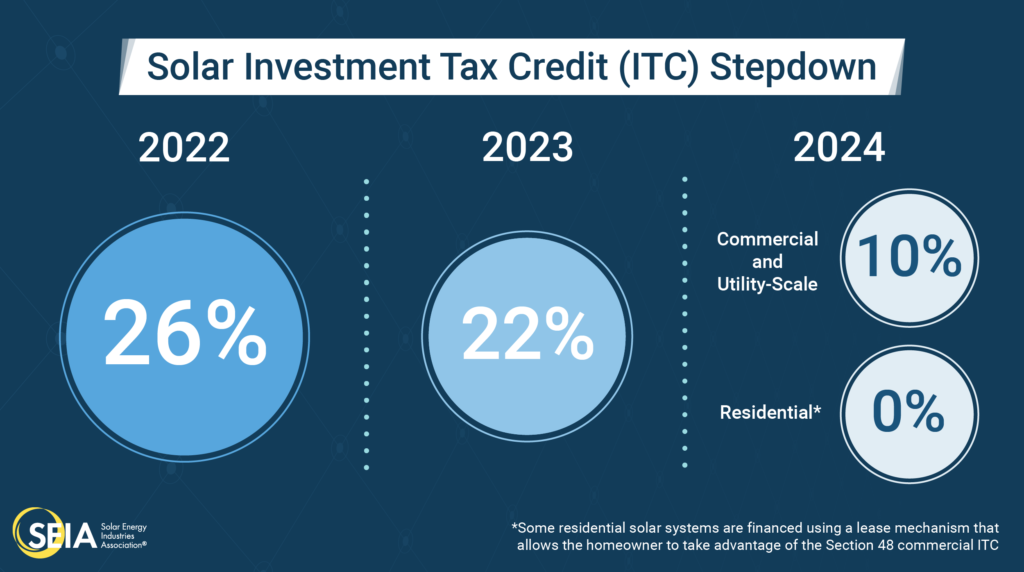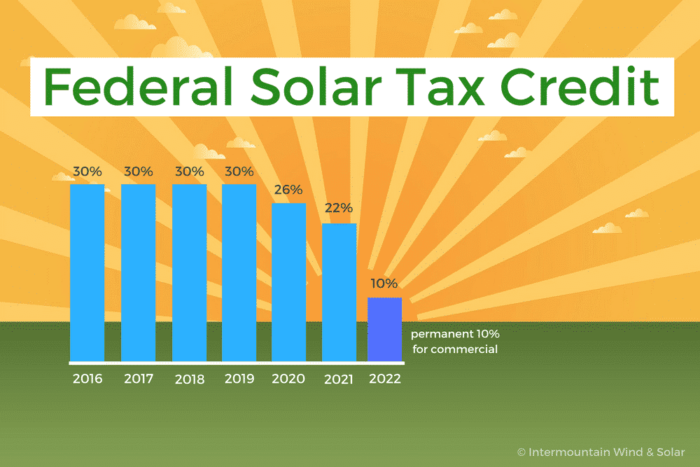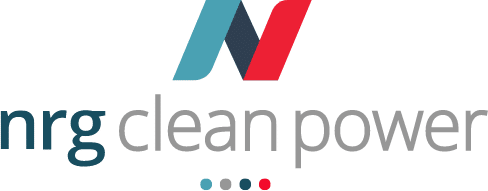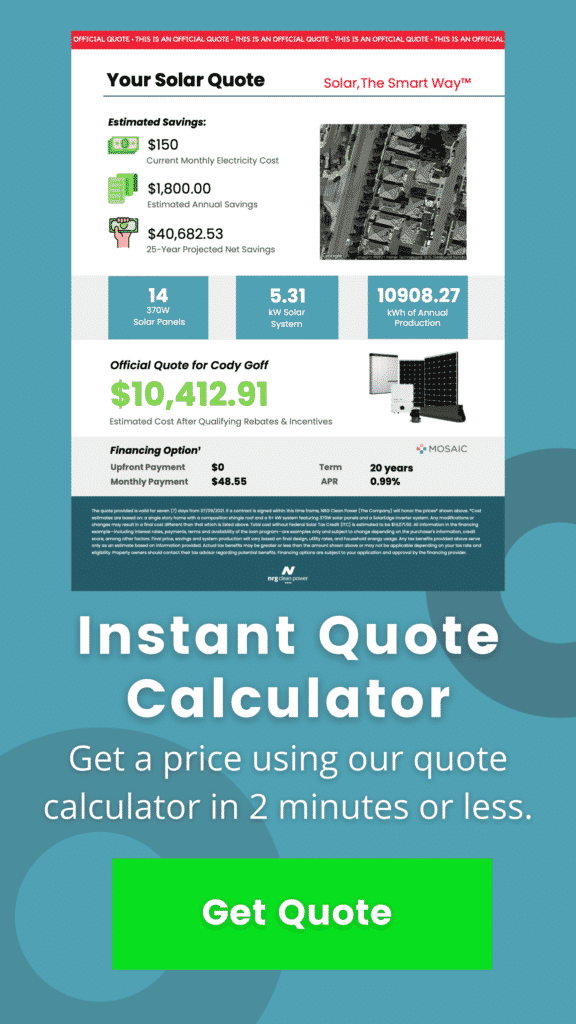
The US federal government offers a generous tax credit to homeowners who install solar energy systems on their property. If you already have one, you may be eligible to claim tax credits of up to 30% of the cost of installation against your income tax bill.
And the good news is that this tax credit has been extended and expanded. So if you’ve been thinking about installing solar panels, there’s never been a better time to take advantage of this valuable incentive.
But what are solar tax credits, and how do they work? In this article, we share everything you need to know to help you take advantage of an opportunity that lets you save money and be good to the environment at the same time.
Do You Have A Residential Solar-Powered System?
To take advantage of the federal tax credit for solar-powered systems, you must have installed a residential photovoltaic (PV) or solar-powered system.
This does not necessarily mean your own personal solar panels—many apartment buildings and condominiums also qualify for tax credits.
A PV system includes panels that convert sunlight into electricity. Solar thermal systems use reflective surfaces or liquids to capture heat energy from sunlight. This is then transferred into a storage medium such as water or air. A combination system uses both photovoltaic (PV) and solar thermal technology.
If you’re looking to make your home environmentally friendly and energy-efficient, solar panels can be an excellent choice that also lets you save on your taxes.
For example, if you installed solar panels on your home in 2016, the federal government will give you 30% of the cost back as a tax credit (up to $500). Some states also grant an additional rebate.
What Is The Federal Solar Tax Credit?

The federal tax credit for solar power is designed to reward the use of solar-powered systems. It is a percentage rebate on the cost of new installations in your home or office.
Calculating the amount you can claim will depend on the date you installed your system.
For example, if you paid $10,000 for a residential solar energy system, you will receive a 30% tax credit from Uncle Sam. That means $3,000 would be deducted from your taxes, which translates to only $7,000 spent toward purchasing and installing your solar energy system.
To illustrate:
| Year of Installation | Tax Credit (% of Total Cost) |
|---|---|
| 2017-2019 | 30% |
| 2020-2022 | 26% |
| 2023 | 22% |
Do You Qualify For A Federal Solar Tax Credit?
Aside from the installation date, to be eligible for the solar tax credit, the solar-powered system must be used by the property owners themselves.
Rented or leased property is generally disqualified. However, you can claim an exemption if you have lived in it for at least one month. The percentage calculation will then be based on the number of months of your residency. For instance, 3 months would be equivalent to 25% of the 30% of the total installation cost for systems installed between 2017 and 2019.
These are the other qualifiers:
- PV system must be composed of new equipment or an add-on to an existing equipment
- Primary residence should be in the US
- Equipment purchased must have been paid for in cash or through financing
- The system was installed within the prescribed period
- A newly installed system produces electricity during the course of the year
You don’t have to be a homeowner to qualify for the credit, but you must be a tenant-stockholder of a cooperative housing corporation or a member of a condominium. In addition, you must have contributed to the costs of the eligible solar PV system.
In this case, the amount of tax credit you can claim would be based on the total of your investment in the solar power system.
On the other hand, if you’re a renter and your landlord installs the solar power system, you cannot claim the tax credit because you’re not the system’s owner.
If you purchased a house with a new solar PV system or new solar panels, you could also claim a tax credit on expenses incurred for installing them. The claim should be applied in the year you moved in and as long as the builder has not claimed it yet.
Qualified expenditures include property (which generally refers to solar panels), engineering, labor, and other costs related to getting a system up and running.
How To Claim The Solar Energy Equipment Tax Credit
To take advantage of the credit, you’ll need to file IRS Form 5695 with your return. Part I of the form will help you calculate the credit, and the amount will then go on your Federal Tax Return Form 1040 or 1040NR.
If you find yourself with a bigger tax credit than you have taxes due for the current year (e.g., a $1,000 credit on a $2,000 tax bill), you won’t be able to cash it in with the IRS. Rather, it will be credited to the following year.
However, if you didn’t claim credit the previous year, you can file an amended return for that year to receive the solar tax credit at the current time.
It’s important to note that claiming the residential solar tax credit can be more complicated when the home you have the solar PV system installed in is also used as an office. Only that portion of the total cost that was residential expense is eligible on the individual’s tax return.
The business part could still be eligible for a similar tax credit on the business’ tax return. But if the system is mostly used for residential purposes, the residential credit can be claimed in full.
The Bottom Line
Solar-powered energy systems may be expensive to purchase and install, but their long-term benefits are worth the expense. This is true even if you use it in tandem with your regular electric grid-sourced power.
Aside from minimizing a household’s carbon footprint, a PV system also reduces utility bills and ensures continuous power during outages.
And now, you even get a tax credit for using one!
You may review the Department of Energy handout for more information on the federal solar tax credit.

Authored by Ryan Douglas
NRG Clean Power's resident writer and solar enthusiast, Ryan Douglas covers all things related to the clean energy industry.


